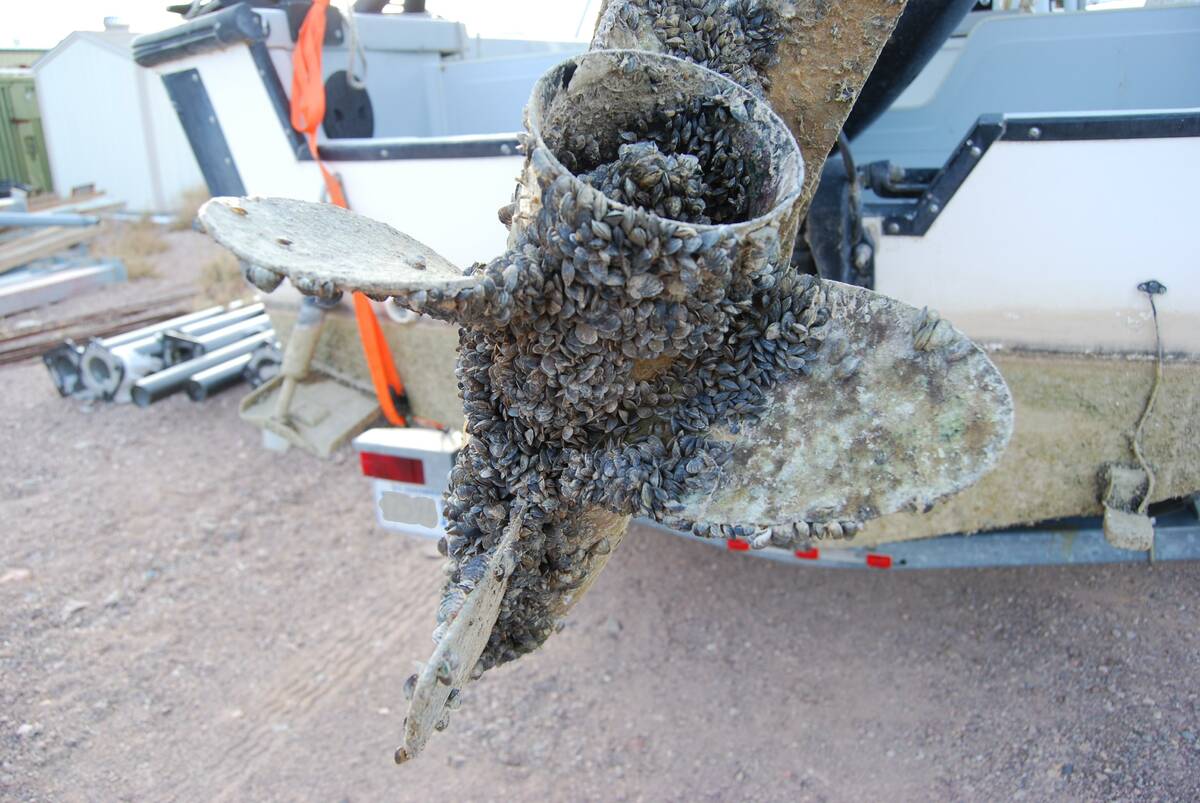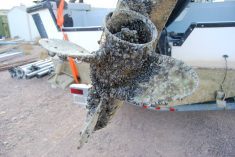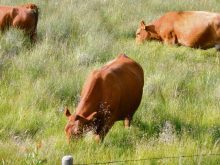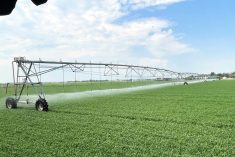All types of farming have their challenges, but market gardening can literally be a tough row to hoe.
Carmen Deschipper, who with husband Eric operates Red Willow Gardens in the Peace region, is a market garden veteran. She came to it via marriage about two decades ago.
Red Willow Gardens southwest of Beaverlodge has evolved since Eric took over the operation from his parents Jack and Helen in 1984. Then mostly a U-pick operation, the market garden occupied 49 acres. It wasn t long before the couple doubled the acreage.
Read Also

Invasive species council lending a helping hand to Alberta agricultural producers
Alberta Invasive Species Council unveils the huge economic effect of keeping invasive species unchecked to agricultural production in the province.
Other changes were quickly implemented.
We switched to making weekly land payments instead of twice a year, says Carmen.
Back in the old days, 20,000 pounds of carrots was considered a respectable amount of storage for the root cellar. Today, between 80,000 and 100,000 pounds go into the root cellar. Every carrot is picked by hand.
Retail operation
A 780-square foot store was built on site in 2002 and is open Monday to Friday throughout the summer. Local staff is hired to man it.
Most of the distribution for Red Willow produce happens at the Grande Prairie Farmer s Market from the middle of July to middle of September. Carmen mans the booth faithfully, saying it just wouldn t do to have someone else.
We feel we should be representing our business so that if someone asks what have you done to grow that?, we know the answer, she says.
Today, the Deschippers grow carrots, potatoes, peas, beans, swiss chard, squash and pumpkins on 100 acres of sandy soil along the Red Willow River.
Carrots are the hallmark of the operation, and word of mouth has been the key to their success.
We re very fussy about what we grow, she said. For years, Nantes 616 was the preferred carrot, but when the seed became unavailable, the Deschippers tested other varieties. Eventually, they found a worthy successor.
At first, we couldn t find one that you taste and go wow, smiles Carmen. For Red Willow Gardens, the wow factor is a prerequisite.
They take their carrots very seriously.
Carrots are number one for us, she said. If we didn t have carrots, the farm couldn t be our sole income.
Foreign workers critical
About five years ago, the Deschippers started using the federal government s Seasonal Agricultural Worker Program. Two workers from Mexico arrive in May and stay through to October and December respectively; two arrive in September for five weeks of fall harvest.
All they ve got for motorized help are 1949 Ford and 1953 Dodge trucks one of which uses a screwdriver for a key. We only need them for a few days every year so we don t see a need to replace them, says Carmen.
A while back, the Deschippers tried a carrot harvester, to no good end.
Our carrots are so delicate the harvester damaged half of them, she said.
Natural, not organic
We call ourselves a natural operation rather than organic because we use granular fertilizer, said Carmen. The Deschippers plant sweet clover and work in green manure as much as possible, and use crop rotations as part of their sustainable operational practices.
Since the Red Willow River offers up sandy soils on its banks, the unusually high levels of moisture seen in the Peace this year didn t hurt, said Carmen.
Not so much the case for Bridgeview Gardens near Peace River. These gardens are famous for their strawberries. Owner Mike Marusiak estimates a loss of about 20 per cent of the strawberry crop this year due a combination of heavy precipitation and cool weather making for ideal conditions for strawberry mould. The Marusiaks grow about 25 acres in the Shaftesbury area, as well as another 25 acres of vegetables.
Mike, a second-generation berry farmer, has operated the U-pick for about 10 years, having grown up in the business. His father Dan owned a market garden in nearby Dunvegan, which had the honour of being the oldest market garden in Alberta before his dad ceased operations in 1998 after 50 years of business.
Today, Bridgeview produces peas, beans, beets, broccoli, cauliflower and carrots.
It s a tough business, Mike says.
The biggest impact of unseasonably cool temperatures has been in cucumber production. Generally, pickling cucumbers are ready at the end of July.
We just started picking near the end of August, Mike said, adding cukes are scarce across Alberta.
We haven t had a really good year in over five seasons, he says. Strawberries are a high-maintenance crop and need to overwintered carefully. If there s an early melt and loss of a protective snowcover followed by freezing temperatures, strawberries may winterkill.
Last season we had more than 13 acres of winterkilled berries, said Mike.
Farm sales are still the main revenue stream for Bridgeview, though traffic has decreased.
Compared to five years ago, we re down between 10-15 per cent in traffic to the farm, he said. As a result, they re traveling more to Grande Prairie to do the Farmer s Market.
At peak season, Bridgeview employs about 15 people in the strawberry patch, and another seven for vegetable production. Most are local workers, and about five come through the Foreign Worker program. Mike says the operation has been using foreign workers since the early 1970s.
Like the Marusiaks, the Deschippers have raised their family on the avails of the market garden. It s meant a lot of sacrifices, and at one time Carmen said they decided to list the farm for sale.
There was no real interest, mostly due to the backbreaking work involved, believes Carmen,
It got me thinking, she recalls. If we quit, where would people buy good carrots?
It made me realize that I do something that s good. I do something worthwhile here.
I know because people tell me.
———
Atfirst,wecouldn tfindonethatyoutasteandgo wow.
CARMEN DESCHIPPER














